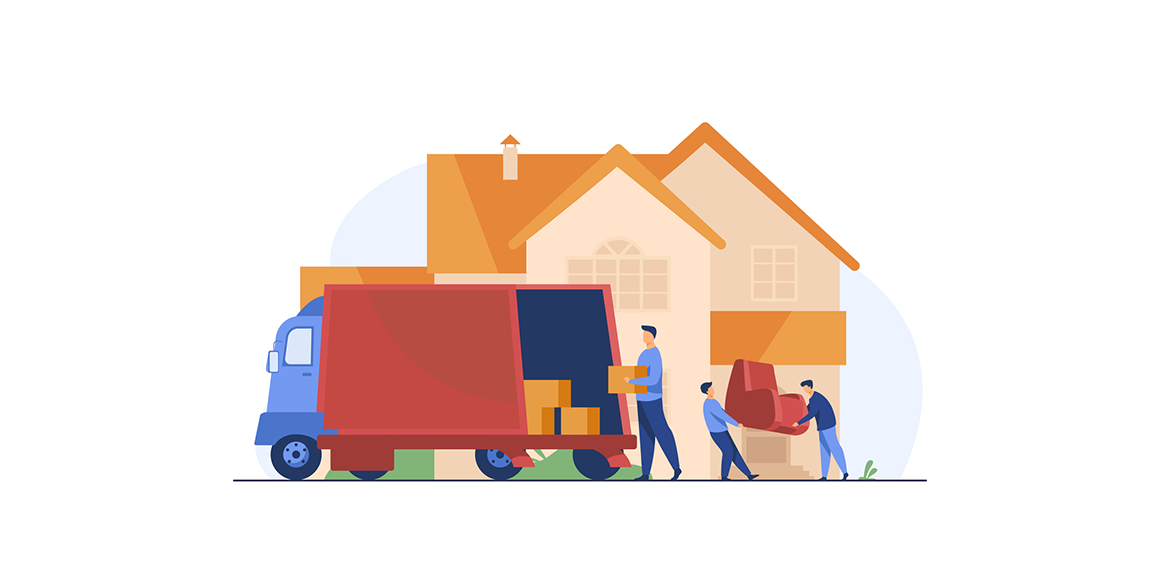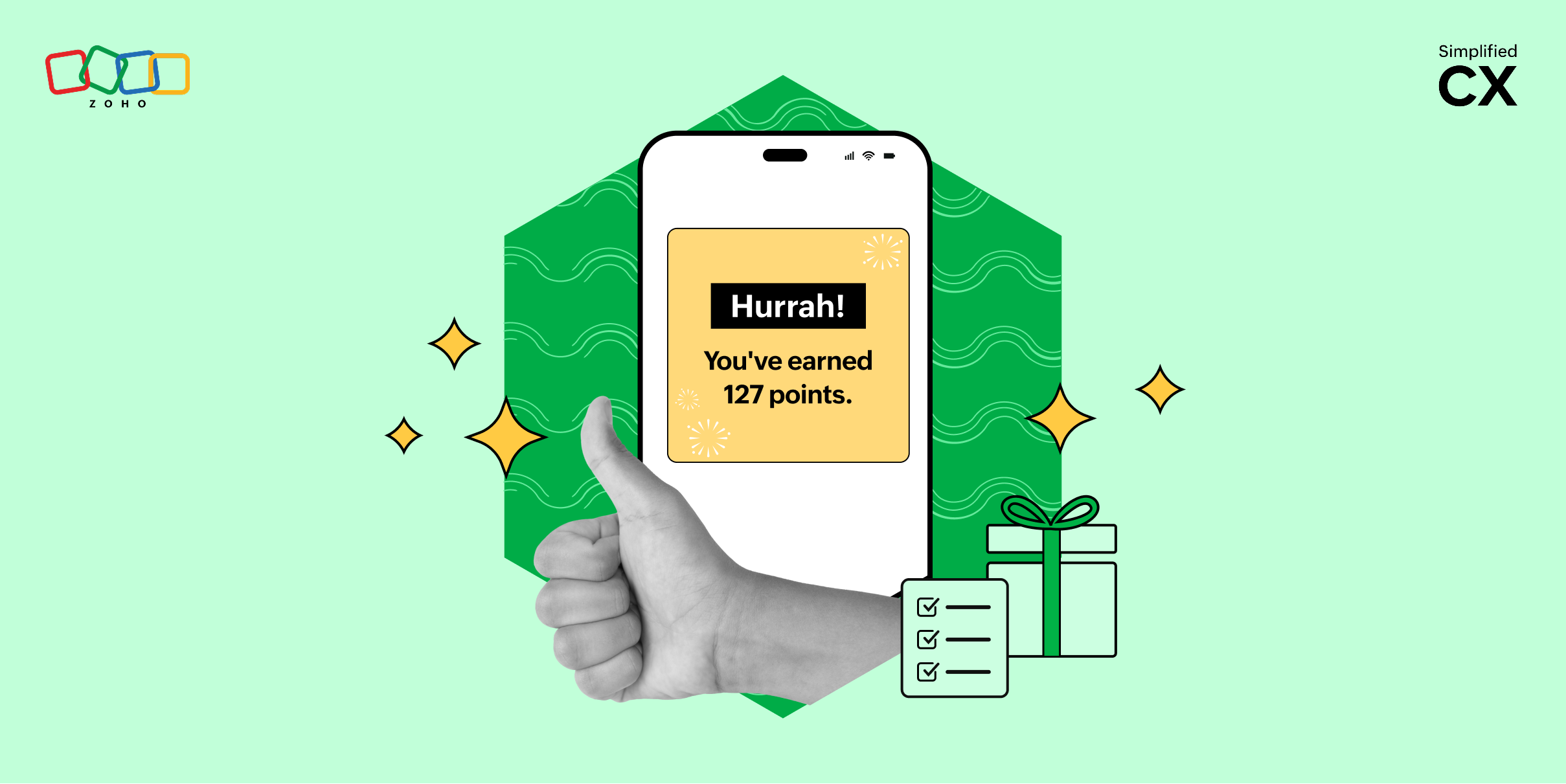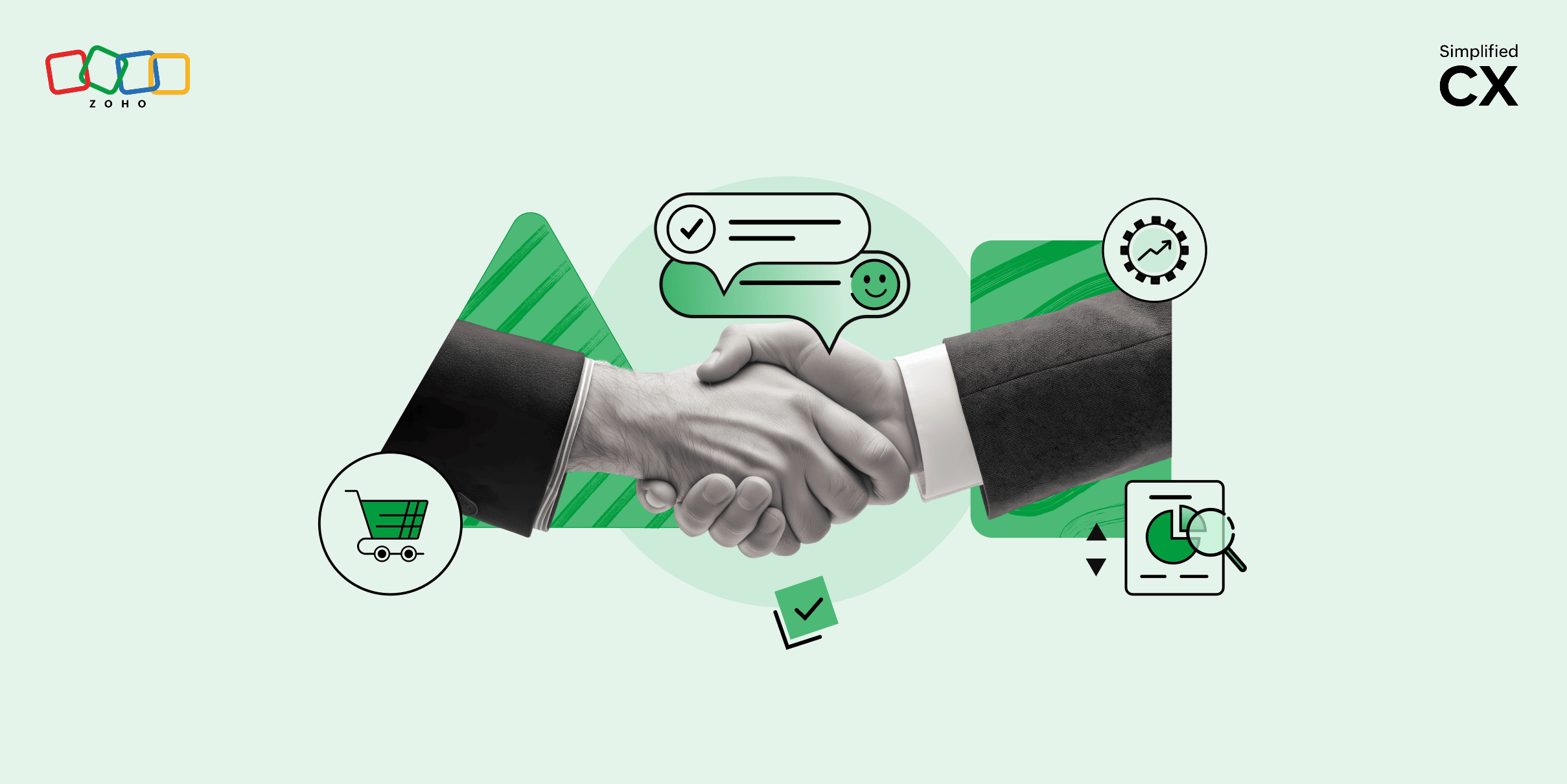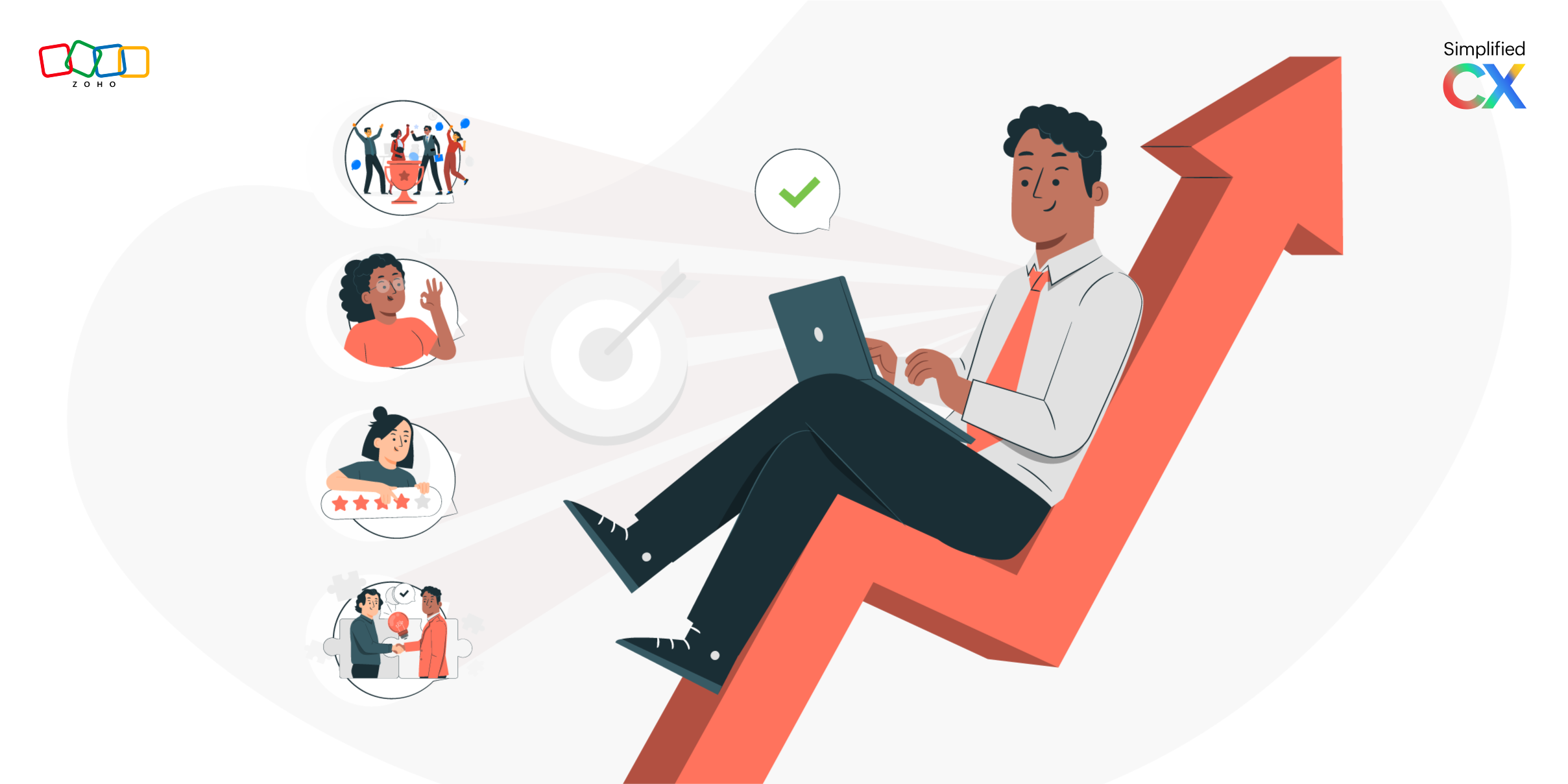Four basic lessons in selling I learned as a customer
- Last Updated : October 24, 2023
- 333 Views
- 8 Min Read

Setting up a new household is one of those times when a person does a good amount of shopping. From huge household appliances and furniture to pieces of decor and even trinkets, a life milestone like this demands a multitude of purchases.
I recently crossed this milestone in my own life, when I moved into an apartment with my two kittens and my wife (please note: I mentioned them in this order just for the rhyme #SimpleJoysOfLife).
As expected, the one or two odd months before moving day saw a great deal of shopping—which, when I pondered it later, taught me a handful of lessons in sales.
What impressed me about a particular shopping experience, what put me off about another, and what people in sales can learn from them—that's what this post will be about.
At one level, buying a household appliance is not just an expense; it's more or less an investment, because the buyer needs to maximize its value. When we wanted to buy staple appliances for the house—a refrigerator, a washing machine, and a television, in our case—we decided to check at multiple big-name stores in our locality.
We eventually ended up buying all three appliances in the same store because that was the only place where the salespeople knew the products in and out. In fact, that was the only store where we spent a lot of time, because the personnel had so much to tell us about the products. They were able to tell us why a diamond drum is more beneficial than the conventional drum in a washing machine. When we were slightly allured by a bottom-freezer refrigerator, they were able to substantiate why exactly it wouldn't be a great choice for us (even though it was a pricier model!). Thanks to the personnel's impressive display of knowledge, we had more or less decided to spend our money at this store.
So, the first lesson was...
Know thy product
It goes without saying that people in sales must first know all there is to know about the product/service they're selling.
You must be clearly able to articulate the following:
- The capabilities of the product
- The limitations of the product (do not bring this up voluntarily, but be open if the customer brings it up)
- Some good practices to follow while using it
These are just a few facts that sales staff must have at their fingertips. On one hand, if the customer has done their research beforehand, you won't appear clueless in front of them. (Believe me, that never leaves a good impression among buyers.) On the other, if the customer hasn't done any prior research, you can point them towards the option that suits them the best. That's something the buyer will keep in mind, which will prompt them to check with you first when they have a similar need later.
If you're a decision-maker at your business, encourage your sales folks to invest time in learning about the product. This becomes easier if you also create the product. If you're a reseller, collaborate with the manufacturers and conduct periodic training sessions for your sales personnel. This again cannot be a one-time initiative. Holding mandatory training sessions whenever a new product/service is introduced is the way to go.
Anyway, once the appliances scene was sorted, we diverted our attention towards the next big item on our shopping list: furniture. A huge sale was on at a leading furniture and decor chain. Our first instinct was to check out their stores and finalize the purchase. We did find couch sets that fit our bill and shortlisted two to three potential winners, but better sense prevailed in the end, and we decided to check in at least one more store before making the purchase.
This decision took us to one of the noteworthy furniture shops in our locality—nowhere comparable to the big brand store we visited first, yet an impressive one. To our surprise, we found more comfortable pieces at a more reasonable price here. The salesperson at the store cared to ask about our budget. Realizing that the couch we eyed was within the budget, she chose to sweeten the deal by offering another piece of furniture that would make sense for us to have. This additional purchase went a wee bit over our budget, but we felt that it'd be worth it.
Thus, the second lesson was...
Always look for upselling/cross-selling opportunities
Many times, customers' minds are like blank slates. They only have a generic idea about what they want. As a salesperson, the more time you take to gather as much information as possible, the higher your chances are to make a successful sale.
At a basic level, you can find out:
- The primary reason for the purchase
- The expectations from the product/service
- The customer's budget
Proactively seeking out these bits of information gives you the upper-hand early on in the interaction. When you have more context about the customer's purchase decision, you can then suggest additional products/services that would make sense for them to use.
Also, try to price the products/services as reasonably as possible, so that there's wiggle room in the customer's budget. When it comes to upselling, even the smallest of additions contributes to the larger picture.
On to the next lesson.
A few days after moving into the new apartment and setting things up, we had to find vendors who did home delivery of milk. I had heard good things about this brand that specializes in organic production of dairy products. I signed up on their website, waiting for a callback. They contacted me a couple of days later and asked for my PIN code (Indian equivalent of ZIP code), so that they could check if delivery was possible in my locality. When I shared it with them, the support agent told me she would get back to me after checking with the team. I thought she would call me back in the next 5-10 minutes, but she never did!
About 10 days later, I received a marketing message from the brand on WhatsApp. I replied, saying that their support agent was yet to get back with a confirmation. And guess what happened next?
Nothing!
I didn't even receive a reply to the message, let alone an apology. I had basically got—for the lack of a better word—seen-zoned by a brand! Definitely not a good experience.
And therein lay the next lesson...
Be responsive to customers
Treat every single customer like a paying customer. Yes, there can be some exceptions and privileges that could apply only to actual paying customers, but general decency and responsiveness are two things that all customers deserve. And this is something that applies to both customer support and sales.
For instance, I had another interaction with a different brand that was a complete contrast.
A few weeks ago, I had tweeted about a minor issue I faced with a kitchen appliance. To my surprise, the company that manufactured it seemed to have found my tweet through a routine keyword search. They bothered to get my contact details, called and noted down the issue, and arranged for a visit by a technician—all within a span of two days.
Now, you may ask how this instance of good customer support is relevant to sales. Good customer support translates into customer loyalty, which in turn translates into repeat business.
Therefore, irrespective of whether you're a sales personnel or support personnel, be responsive to customers. Make sure to give them a quote on time. Minor delays are fine, but if you tell the customer you'll get back to them, make sure you get back to them. Being indifferent is a sure-shot way to lose even potential customers, especially in today's age of instant communication and social media.
Now, off to the final lesson.
About a month after moving into the new house—after purchasing all the items we needed—I diverted my focus towards things that we I wanted. This particular want involved one of my long-time dreams.
I did some research online and found a product that fit my requirements really well. I checked the price on an ecommerce site that sells products nationwide. Then, I checked the price on the website of a store within the city. It was slightly higher than on the first site. Nevertheless, I contacted their help desk to find out if they could provide me a discount on that particular model. The person on the other end immediately said that it wouldn't be possible and that the price on the website was final.
I got off the call and thought for a while. Then, I placed the order on the first ecommerce site that I looked at. About 15-20 minutes later, the sales executive from the local store called me back, saying that they would be able to provide a discount. With the discount, the price was the same as the one provided on the e-commerce site. I told him that I had already placed the order on a different website.
The lesson in selling was looking straight into my eyes...
Never be quick to say no
All that the executive had to tell me on the first call was "We don't currently offer discounts, sir. But I'll check with the management and get back to you in a few minutes." If I had heard that, I would have most certainly waited until I received a call from him and then made a decision. In this case, the loss, for sure, wasn't mine.
So, if you're in sales and the next time a potential customer asks you something that you're not fully sure of, request some extra time, discuss the matter with your higher-ups, and then update the customer. Maybe the software you sell does not have a certain functionality that the customer is looking for. In that scenario, you don't have to give them an outright "no." You could check if there are any add-ons, integrations, or custom solutions that could help achieve it.
Make it a habit to say no only after exhausting all the options available. The word "no" must be a last resort, not your first response.
The lessons in selling don't end here. These form just the tip of the iceberg. However, this is a good place to start if you're new to selling. So, the next time you talk to a potential customer, keep these lessons in mind, and feel the change in your interactions. Also, let us know about any other sales lessons or practices that worked wonders for you.


